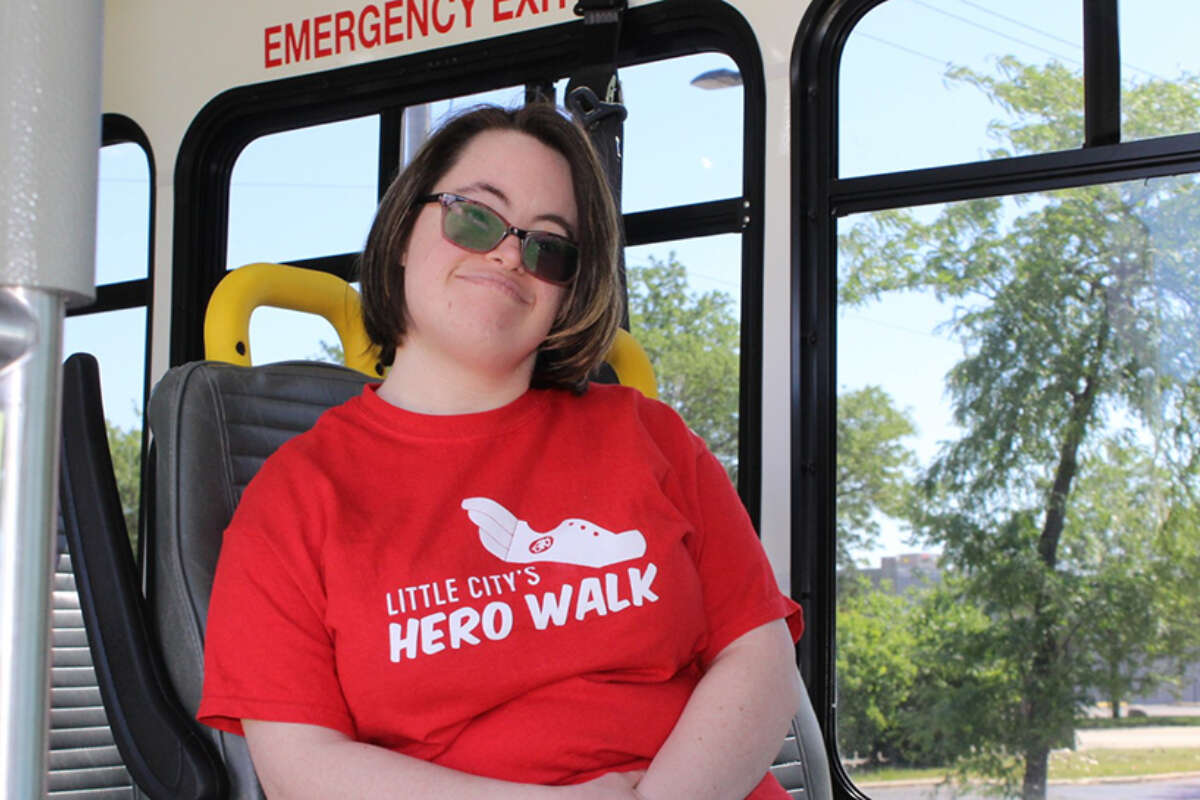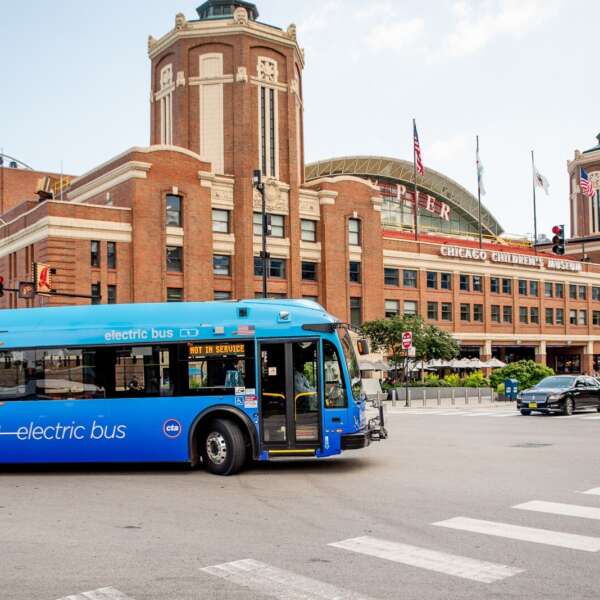Little City Foundation builds partnerships to provide efficient travel for seniors, individuals with disabilities
June 29, 2022
June 29, 2022

This is part of our Moving You series, which examines federally funded programs managed by the RTA that expand transportation options and access for all.
More than 95 percent of the people served by Little City Foundation, a nonprofit serving seniors and individuals with disabilities, have an intellectual or developmental disability and need consistent assistance and support. People with these types of disabilities need to make the same trips as anyone else—medical visits, employment, shopping, social activities—but are sometimes unable to drive themselves or safely navigate public transportation. That means transportation services offered by organizations like Little City Foundation are paramount to these individuals’ independence and health.
“Any of our residential facilities provide transportation to the residents of those facilities for literally everything—at no cost to the participants or their families,” said Julie Frankino, Director of Grants for Little City Foundation. “We take them to day programs on a daily basis. We take them grocery shopping, to their doctors’ appointments, on community outings—really anywhere they need to go.”
Little City Foundation’s transportation services operate throughout the region, serving participants of their residential and day programs. The organization has three major hubs for their transportation services: one in Lake County at their Lakeside Center, another in Schaumburg at their Countryside Center, and one at their Main Campus in Palatine; that part of their fleet is dispersed throughout the northwest suburbs. The organization provides trips for about 900 individuals a year, including over 200 for whom Little City Foundation is the sole transportation provider. This year, the RTA will provide $500,000 in federal funding to support Little City Foundation’s transportation services through the Section 5310: Enhanced Mobility of Seniors and Individuals with Disabilities Program. Additionally, the RTA will allocate nearly $240,000 in federal funding to a collective of nonprofits, including Little City Foundation, to study the feasibility of consolidating and coordinating the current agencies’ routes, support services, scheduling software, and in-vehicle technologies. Learn more about the Transportation Collaborative.
“All of the developmental disability service providers in the region work together on a lot of things,” Frankino said. “We know that’s been a big push in the transportation world, to improve collaboration and efficiency. The purpose of that collaboration is to do a study. Everybody has ideas about what's going to come out of it, but the reality is we study these things because we don't know. We're anxious to find out—are there gaps we can fill, are there ways we can pool resources to be more efficient? We hope the study leads will help us see connections that we just don't recognize yet.”
In addition to the Transportation Collaborative’s study, Little City Foundation is working closely with another nonprofit, Clearbrook, to better coordinate their employment transportation services. Frankino said the two organizations face the same challenge: job locations and worker schedules can vary quite drastically and change all the time. These trips are not as easy to schedule as transportation between day programs. So on a quarterly basis, the two nonprofits compare their fixed routes and schedules and coordinate rides for workers in both programs.
“We’ve mapped out all the regular routes, so we can take a look at what the employment needs are, plug them into all the established routes we have, and see if there are places where someone from the opposite agency could take advantage of an existing route,” Frankino said.
All of this coordination and expertise leads to high levels of satisfaction among participants and their families. The transportation services are reliable, and the drivers know the people who ride their routes and are familiar with their individual needs. Riders get to know one another, too.
“I’ve made a lot of new friends since I’ve been here,” said Kris, a Little City Foundation participant who lives in Palatine and uses the organization’s transportation services. “I know the drivers, and I have a lot of friends on my current bus. It makes us feel good to be with our friends. If I didn’t have friends, I’d feel very left out. And I wouldn’t be able to see my friends if I didn’t have the bus.”
Kyleen, another Little City Foundation participant, uses a walker that sometimes makes it tricky to get on and off vehicles. But her driver, Bernie, knows how to handle it and help load the walker in and out. And participant Rachel uses the bus to get to and from work and takes it for other, equally important trips to the ice cream shop. These transportation services keep participants connected to their communities in a way that would not otherwise be possible.
“The nature of the disabilities of the people we serve really requires a high degree of support for them to be able to access transportation,” Frankino said. “Our transportation service provides that level of support. We provide a way for participants to access the community at large that they wouldn't have otherwise. Transportation is what gives the folks we serve a connection to the world.”
Subscribe to our Newsletter
Related Articles
 How to navigate the Democratic National Convention using public transportation
How to navigate the Democratic National Convention using public transportation
The Democratic National Convention is coming to Chicago’s United Center and McCormick Place August 19-22, 2024, and with it will come roughly 50,000 visitors...
July 25, 2024 How to use transit to explore museums in the Chicago region
How to use transit to explore museums in the Chicago region
The Chicago region is home to countless accessible cultural and educational amenities including 150 museums across several counties. The most cost-effective ...
July 10, 2024 RTA welcomes summer 2024 interns
RTA welcomes summer 2024 interns
This summer the RTA welcomed six new interns from Chicago-area universities. The interns work in various departments including Communications, IT, Strategic ...
June 27, 2024 Four months into the Access Pilot Program, over 3,000 Metra riders experiencing low incomes enrolled for more affordable fares
Four months into the Access Pilot Program, over 3,000 Metra riders experiencing low incomes enrolled for more affordable fares
On February 1, RTA launched the Access Pilot Program in partnership with Cook County and Metra, extending reduced fares to eligible Metra riders experiencing...
June 13, 2024 How to use transit to celebrate Pride Month in the Chicago region
How to use transit to celebrate Pride Month in the Chicago region
June is Pride Month, a time to honor and celebrate Lesbian, Gay, Bisexual, Transgender, Queer and Questioning (LGBTQ+) individuals in the United States. The ...
May 31, 2024 How to use transit to enjoy summer in the Chicago region
How to use transit to enjoy summer in the Chicago region
Summer weather is here and although the season can feel short for many Chicago residents, there is no shortage of fun to be had. To celebrate the sunshine, t...
May 24, 2024